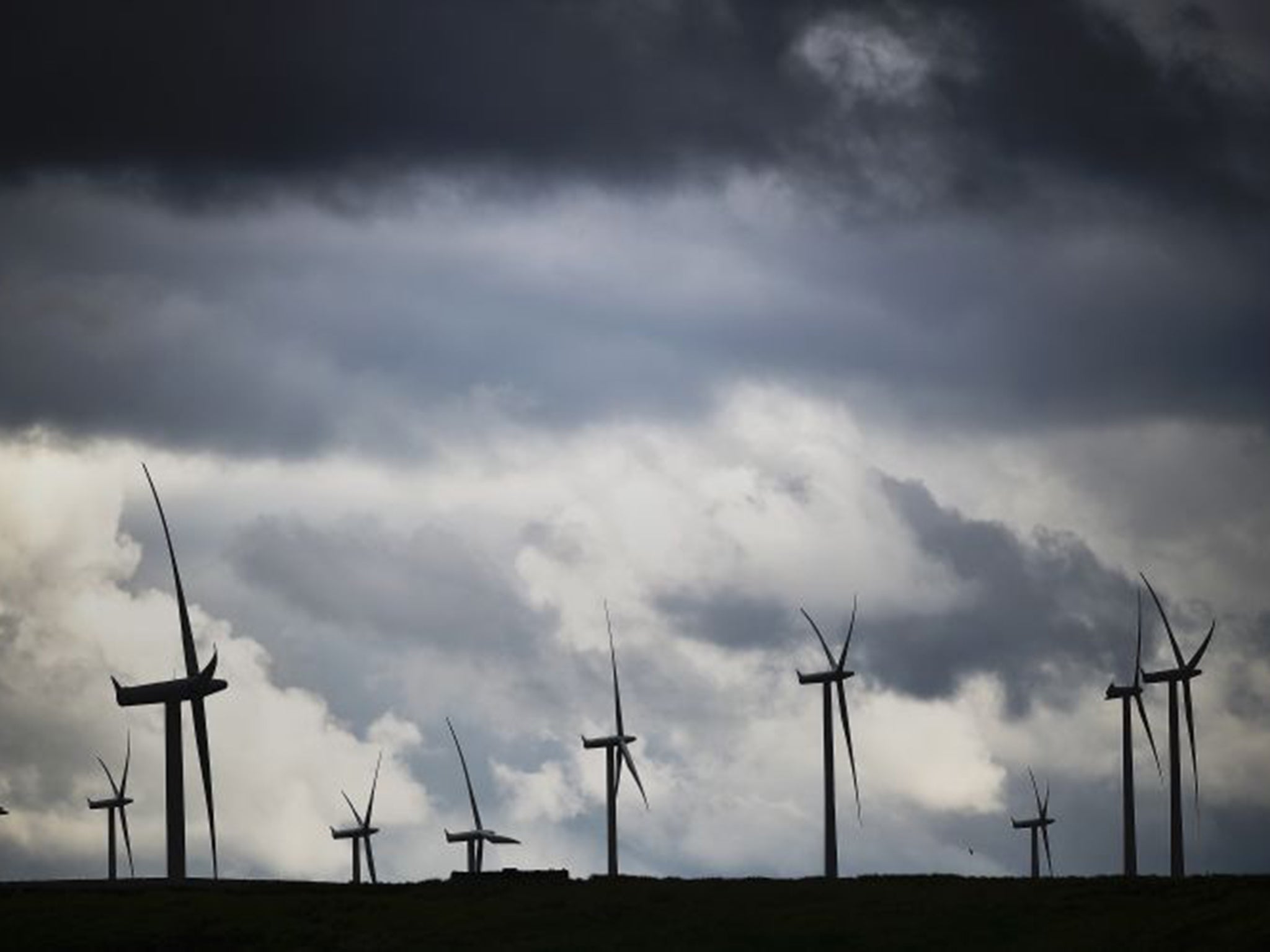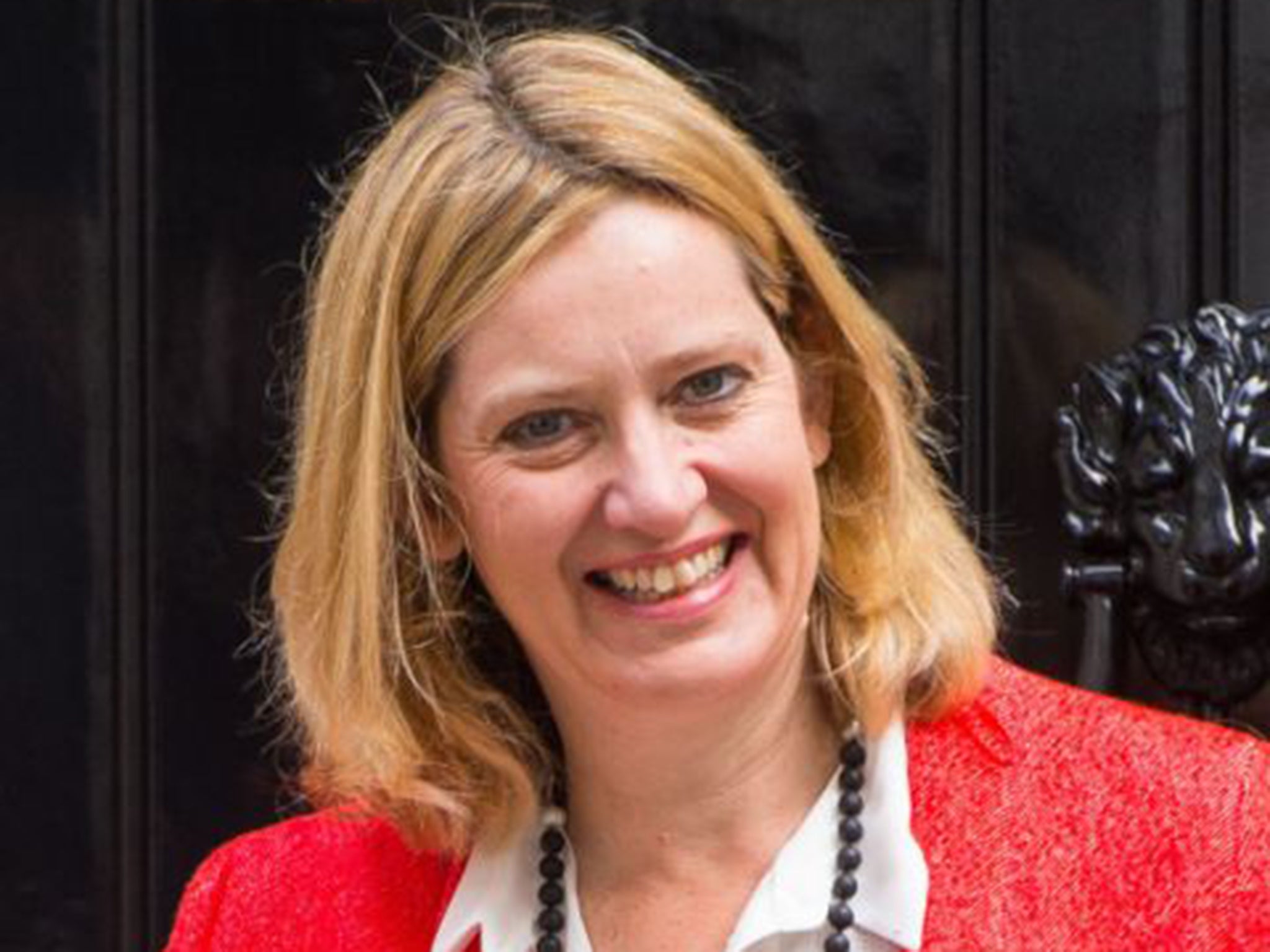Energy Secretary Amber Rudd must not let the anti-wind lobby decide Government policy
A business pioneer says the Energy Secretary must understand money if the UK is to become a powerhouse

Your support helps us to tell the story
From reproductive rights to climate change to Big Tech, The Independent is on the ground when the story is developing. Whether it's investigating the financials of Elon Musk's pro-Trump PAC or producing our latest documentary, 'The A Word', which shines a light on the American women fighting for reproductive rights, we know how important it is to parse out the facts from the messaging.
At such a critical moment in US history, we need reporters on the ground. Your donation allows us to keep sending journalists to speak to both sides of the story.
The Independent is trusted by Americans across the entire political spectrum. And unlike many other quality news outlets, we choose not to lock Americans out of our reporting and analysis with paywalls. We believe quality journalism should be available to everyone, paid for by those who can afford it.
Your support makes all the difference.The Government is turning the English language inside out in an effort to dress up drastic cuts in spending on things we need as “cold, hard economic sense”. Ministers seem to be competing in a “Britain’s got austerity” contest with the Chancellor in the role of Simon Cowell. Last week, we heard Amber Rudd, Secretary of State for Energy and Climate Change, indirectly criticise her predecessor, Greg Barker, usually the sharpest pinstriped Tory in the room, of being a socialist and pushing an anti-growth agenda as she chopped support for his flagship Green Deal scheme.
I am a capitalist. A capitalist who has a conscience, and one who believes we can make markets and finance work for the good of society and the environment. I have to say that this “cold, hard economic sense” makes no sense to me at all.
As a founder member of the team that created peer-to-peer lending pioneer Zopa.com, I have seen how markets can be harnessed to create new paths to economic well-being. Ten years later, Zopa members are close to lending their billionth pound, with industry-leading returns and rates of bad debt. I am glad I didn’t listen to the economists who said it wouldn’t work.
I now run a peer-to-peer investing company called Abundance, which helps ordinary people invest in UK renewable energy, producing long-term, relatively stable returns from UK companies, paying UK corporation tax and giving the UK a secure, low-cost energy future. We call it democratic finance.

The mistake the secretary of state makes is to confuse free markets with a free-for-all. History shows that markets can be free only if they are regulated to be free. The alternative is that those with the power and capital to pursue their own selfish interest control markets at the expense of society. In the 19th century, the United States was one such free-for-all market, and it was the concentration of wealth and power in the hands of a few monopolist “barons” (Carnegie, Ford, Rockefeller, etc) and their fast money that sowed the seeds for the 1929 crash. A free-for-all economy is not capitalism; it is a form of feudalism. Competition is ruthlessly crushed.
The Government is busy rewriting the history of 2008, blaming overspending on benefits for the collapse of Lehman Brothers. But we should remember that even that free-market fundamentalist Alan Greenspan said “we got it wrong”. The socialist agenda of 2008 was the one that provided the rationale to bail out the remaining banks rather than let them fail. The markets failed and socialism dug them out of a very deep hole.
We make the markets we deserve. Before you say, “he would say that”, I didn’t. It was the chairman of one of the world’s biggest insurers, Aviva, at whose conference on climate change Ms Rudd spoke on Friday.
The UK has the resources to be a green-energy powerhouse for Europe, as we are blessed with copious wind and bountiful solar potential, from the South-west to Scotland. Green energy represents the biggest potential investment in the rural economy since the agricultural revolution and will help keep farmers, the custodians of our rural environment, on the land. This “socialist” levy on energy bills has helped leverage billions of pounds of inward investment, long-term skilled jobs and financial support for communities who have seen their other local infrastructure spending slashed.
The previous government had put together, with cross-party consensus, a series of initiatives to support the growth of this market, and help it move to being sustainable; which means being able to compete with established, highly subsidised industries such as fossil fuels. Just as that was about to happen, the support has been cut and the industry left to fend for itself.
What about competition? Surely this will drive down energy prices and make us all better off? We should ask where this competition comes from.The cheapest sources of energy are gas, onshore wind and solar. However, the Government wants nuclear to be competitive (which has a guaranteed price that rises with inflation from 2020, and perverse incentives for the constructors to take their time getting the thing built so that its price could rise to 40 per cent above the “market” rate). The other alternative is offshore wind, which despite its huge production potential, is still more expensive than nuclear. So Amber Rudd’s competition solution is to subsidise the technologies that are more expensive and undermine the technologies that have used subsidies to reduce their costs to the bill payers.
So here is a problem for Ms Rudd to consider in that “cold, hard economic”’ way she espouses. Capital has choices. There are lots of incentives out there, especially if you want to risk your money developing shale gas or draining the last of the oil from under the North Sea. It is the nature of big capital that it avoids things that look “difficult” and it is unlikely to want to bet against government policy. It will seek the line of least resistance and choose the path to easy money if it can. She needs to understand that her rhetoric, directed as it is towards a narrow interest group of anti-wind campaigners, does make markets. I will say it again: we make the markets we deserve.
A free-for-all energy market will see capital go where it thinks it can make the best (and easiest) returns in the short term, which, right now, are to the expensive but politically palatable technologies such as offshore wind and nuclear. And, of course, oil and gas. It would be easy to say that energy is too complicated and should be left to the experts to argue it out. But remember that your money, via your energy bills, is paying for the next generation of the energy market to be created. You can choose to let the anti-wind lobby put up your energy bill and push us towards technologies that will get only more expensive with time or you can make your voice heard. The voice of cold, hard democratic finance.
Bruce Davis is co-founder of Abundance and visiting research fellow at Bauman Institute, Leeds University
Join our commenting forum
Join thought-provoking conversations, follow other Independent readers and see their replies
Comments